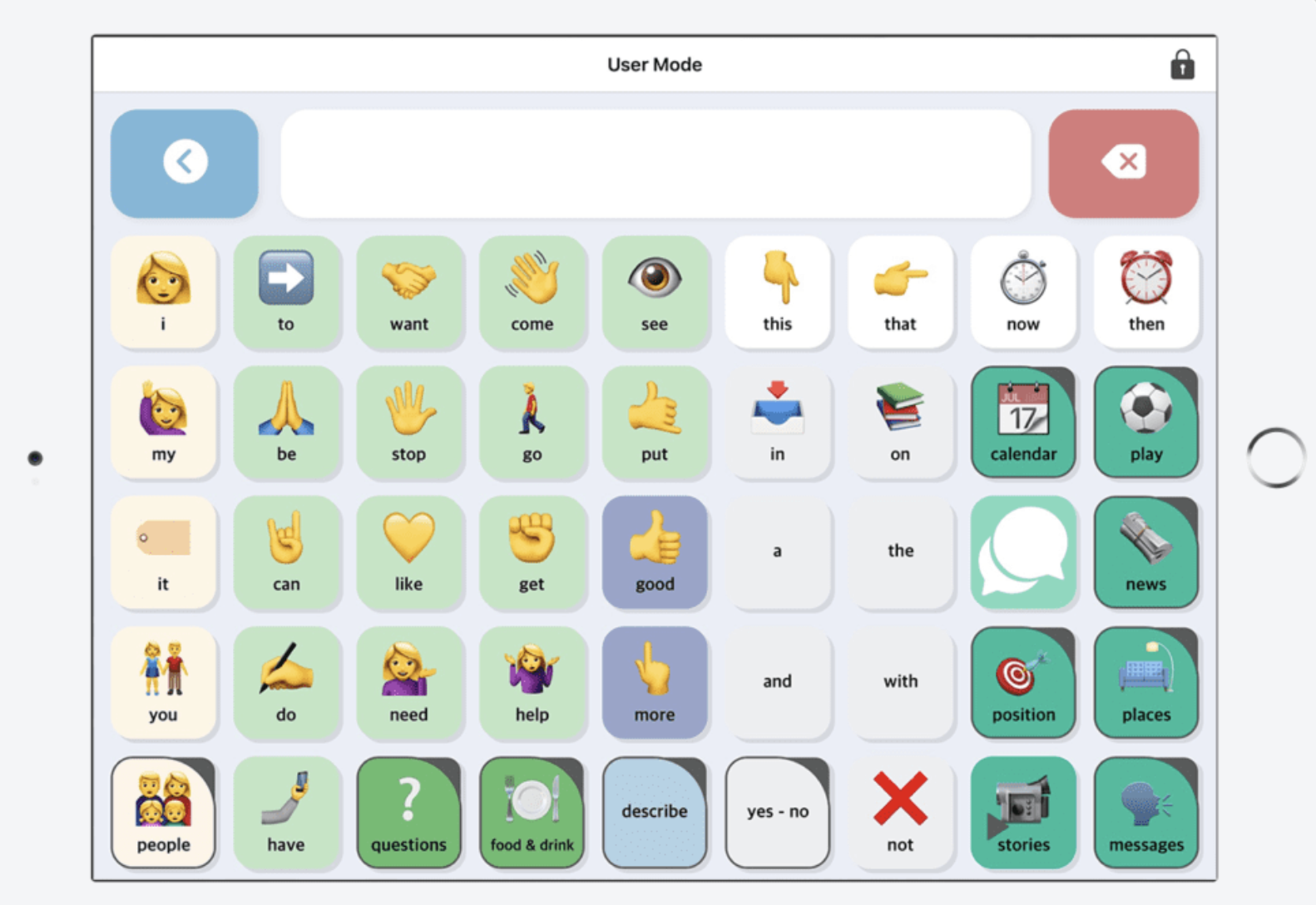
debunking myths about aac
8 September, 2024
Despite its many benefits, there are several myths and misconceptions about AAC that can hinder its adoption and effective use.
Let’s address and debunk some of these myths:
Myth 1: AAC is a last resort.
Reality: AAC should not be seen as a last resort but as a valuable tool that can be introduced at any stage. Early use of AAC can support language development and prevent communication difficulties from worsening. It is often beneficial to introduce AAC as soon as a communication need is identified.
Myth 2: AAC will hinder speech development.
Reality: Research has shown that AAC does not impede speech development. In fact, it can support and enhance speech production. AAC provides a means for communication that can reduce frustration and motivate individuals to develop their verbal skills further.
Myth 3: AAC is only for individuals with severe disabilities.
Reality: AAC can benefit a wide range of individuals with varying communication needs, from those with mild speech delays to those with significant communication impairments. It is a versatile tool that can be customised to fit the specific needs of each user.
Myth 4: Prerequisites need to be met to use AAC.
Reality: Children as young as 6-12 months can begin to use simple forms of AAC with no prerequisites. Early introduction can help children develop language skills and provide a foundation for more complex communication as they grow.
Myth 5: Once an individual starts using AAC, they will always need it.
Reality: The use of AAC can change over time. Some individuals may use AAC temporarily until their verbal skills improve, while others may continue to use it as a primary communication method. The key is to provide ongoing assessment and support to meet changing communication needs.
Some Additional Considerations When Using AAC
Choosing the Right AAC
Selecting the appropriate AAC system involves a thorough assessment by a speech pathologist, considering factors such as the individual’s communication needs, cognitive abilities, motor skills, and personal preferences. Collaboration with the individual and their family is essential to ensure the AAC system is functional and user-friendly.
Supporting AAC Users
Successful AAC use requires ongoing support, including:
• Training and education: Providing training for the AAC user, their family, and caregivers to ensure effective use of the system.
• Customising the AAC system: Regularly updating and personalising the AAC tools to reflect the user’s changing needs and interests.
• Promoting AAC use across environments: Encouraging the use of AAC in various settings, such as home, school, and community, to ensure consistent communication opportunities.
By understanding AAC and debunking the myths surrounding it, we can better support individuals with communication challenges and help them achieve their fullest potential.
At daar, our experienced speech pathologists are dedicated to helping individuals find the right AAC solutions to enhance their communication skills and overall quality of life. If you have questions about AAC or would like to schedule an assessment, please contact us at daar (Canterbury) on (02) 9133 2500.
.svg)













